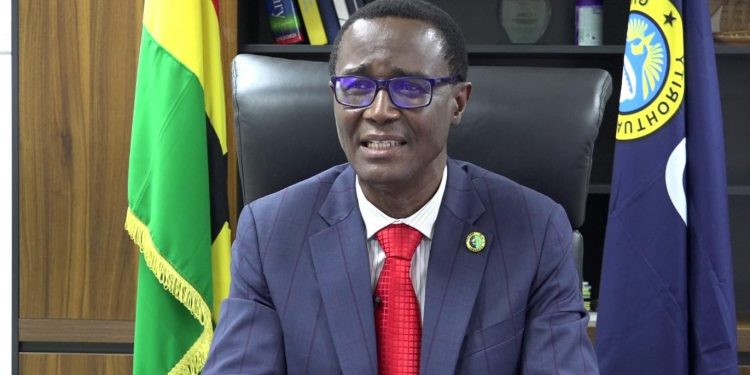GRA defers implementation of benchmark value reversal for additional 10 days
The Ghana Revenue Authority (GRA) has for the second time deferred the implementation of the reversal of the benchmark value policy.
This follows the previous deferment from January 4, 2022 to January 6, 2022.
Per a communique from the Customs Division of the GRA, the implementation of the policy reversal has been deferred to Monday, January 17, 2022 – an additional 10 days.
According to the GRA, transitional arrangements to ensure a smooth implementation will allow a storage free period for vessels that discharged on 31st December, 2021 to go through clearance without being affected by the reversal policy.
Per the new directive, effective Monday, January 17, any Bill of Entry (BOE) presented without payment of duty and other taxes or deposit of security (where it is a suspense cargo) will be affected by the policy.
Read: Deferred implementation of reversed benchmark values ends today
A bill of entry shall require reprocessing to be affected by the new policy. This will include the following:
a. Where BOE tax assessment is accepted by declarant but tax bill has not been paid
b. Where BOE tax assessment is yet to be accepted by the declarant
“For any assessed BOE that was affected by the earlier effective dates of 4th or 6th January, 2022, a reprocessing will be required to reverse the effect of the policy on duty and taxes,” added the GRA.
The deferment of the implementation of the policy reversal follows a meeting between the Finance Ministry and stakeholders on Thursday afternoon.
The meeting afforded the leadership of GUTA, AGI and the IEAG the opportunity to state their positions on the policy and how it would impact their operations.
Finance Ministry to announce way forward after meeting stakeholders
The Ministry of Finance initially was expected to announce its final decision on the reversal of the implementation of the benchmark value policy following a meeting between the Finance Ministry and stakeholders Thursday afternoon as the leadership of GUTA, AGI and the IEAG who were in the meeting had the opportunity to state their positions on the policy and how it would impact their operations.
The leadership of the AGI and GUTA in separate interviews held opposing views on the policy, and expressed hope that the Ministry would soon state it’s position on the matter to bring finality to the disagreements surrounding the policy.
The GRA, however, deferred the implementation of the policy for 24 hours to allow importers who got their duty bill before January 4, 2022, to pay and clear their goods.
The policy has since been met with divided opinions over its appropriateness among industry players and stakeholders.
Read: 40% interest rate charged on “innovative” zero-coupon bond – Seth Terkper
Briefing the journalists after the meeting, Seth Twum Akwaboah, Chief Executive Officer of AGI, said, ”The Minister listened to the position of all parties. For us at AGI, our position is that we should support local manufacturing and the local industry.
“If you have an industrialization agenda, rolling out 1D1F and suddenly you reduce the cost of imports to undermine your own industrialization efforts, it will not work well”.
Mr Akwaboah said the stakeholders did not get a clear conclusion on the policy after the meeting adding that the Association is waiting for an official communique from the Ministry.
Dr Joseph Obeng, President of GUTA, said the Association appealed to the Finance Minister to suspend the reversal of the policy to cushion traders in the country.
“We are appealing to the Minister to come out as soon as possible because our people are confused as to the way forward,” he said.








